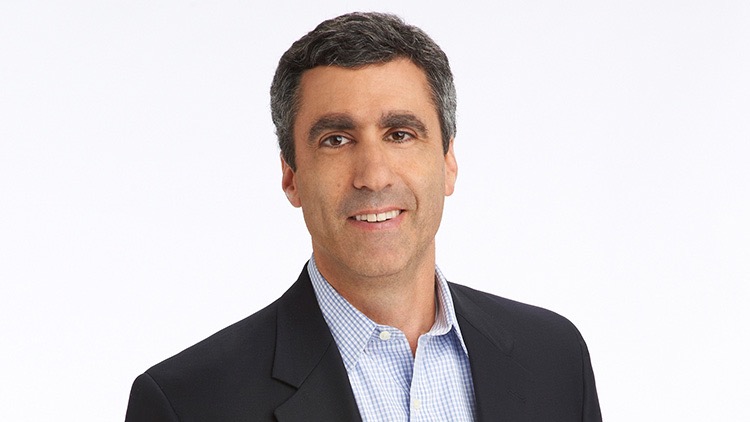The Five Spot: Gary Zenkel

The smarter way to stay on top of broadcasting and cable industry. Sign up below
You are now subscribed
Your newsletter sign-up was successful
Growing up in Scarsdale, N.Y., NBC Olympics president Gary Zenkel dreamed of growing up to be a professional golfer. Though he was good enough to play for Michigan as a walk-on, he gave up his bigtime sports dreams and went to law school.
When Zenkel was a junior attorney at Cahill Gordon, a deal memo about a golf tournament was being reviewed. The client was NBC Sports and Zenkel got himself assigned to the project. Not long after that, he found himself working at the network as it began a long run as the home of the Olympics.
After Comcast acquired NBCUniversal, Zenkel worked with Comcast chairman and CEO Brian Roberts, new NBCU CEO Steve Burke and NBC Sports Group president Mark Lazarus on a pitch that landed the games for 2016-20 for $4.32 billion.
Zenkel also used to steward NBC’s relationship with Notre Dame, his second-favorite college football program. He went to most Fighting Irish games, but usually sat quietly in the athletic director’s box. He's reminded daily by a jersey hanging outside his office.
Here’s an edited transcript of Zenkel’s conversation with B&C business editor Jon Lafayette.
With the games less than a year away, what makes you worry?
You always worry about the facilities, especially after Rio [in 2016] and Sochi [in 2014]. It was very public [that] they were sprinting to the finish lines. I just returned from PyeongChang last week and virtually every venue has had some form of test event. So I’m not worrying about that this time around, which is very unusual after the last couple.
Aside from visiting venues, what do you do in South Korea?
Food and dining can be a very interesting experience and actually a really great one. I’ve gotten pretty fond of Korean barbecue, where they cook in the middle of the table and they have some interesting beverage to accompany the meal. If you’re somewhat adventurous in terms of your palate, there’s a lot of interesting food to be had when you’re in Korea.
The smarter way to stay on top of broadcasting and cable industry. Sign up below
Besides billions of dollars, what convinces the International Olympic Committee to do business with you?
Money is probably the most important component, but it’s also broadly how are we going to cover it, what kind of innovation are we going to bring, how are we going to market and promote not just our coverage, but their brand. I talked about innovation, taking advantage of technology to broaden distribution so more and more of the content is available and it’s more personalized so people have access to what they want to see.
More ways to watch contributed to lower ratings for Rio. Was that a problem?
It’s actually mostly positive. Ten years ago, you might have pegged your linear prime time television rating as the only measure of success—and, by the way, it’s still a very important measure—but consumption is happening broadly and across platforms. So if you look at total consumption, you don’t see a dropoff. When you look at the content that’s being consumed on mobile and social, you see massive growth and, by the way, you see massive growth among very young people.
What did the return of golf to the Olympics mean to you?
I usually like to hang around the International Broadcast Center. But I did sneak out for one of the golf days. Leading into the tournament, a couple of the best players dropped out and there were some questions about whether golf would survive. The reality is it was a great tournament. Ricky Fowler, who didn’t medal, couldn’t stop oozing about what a great experience it was and now has the Olympic rings tattooed on his forearm. If you’re NBC and you own the Golf Channel, you’re thrilled that golf is in the Olympic program.
Jon has been business editor of Broadcasting+Cable since 2010. He focuses on revenue-generating activities, including advertising and distribution, as well as executive intrigue and merger and acquisition activity. Just about any story is fair game, if a dollar sign can make its way into the article. Before B+C, Jon covered the industry for TVWeek, Cable World, Electronic Media, Advertising Age and The New York Post. A native New Yorker, Jon is hiding in plain sight in the suburbs of Chicago.

